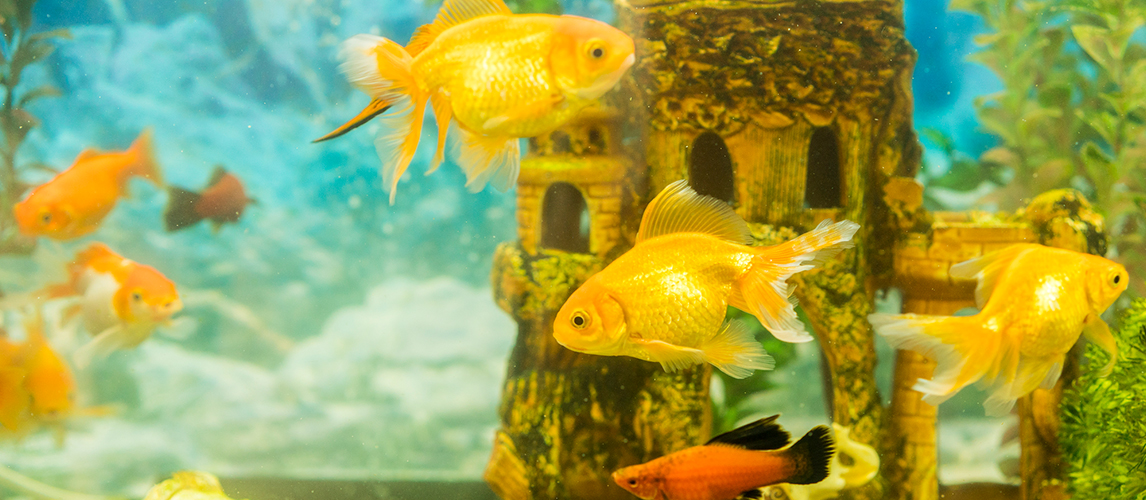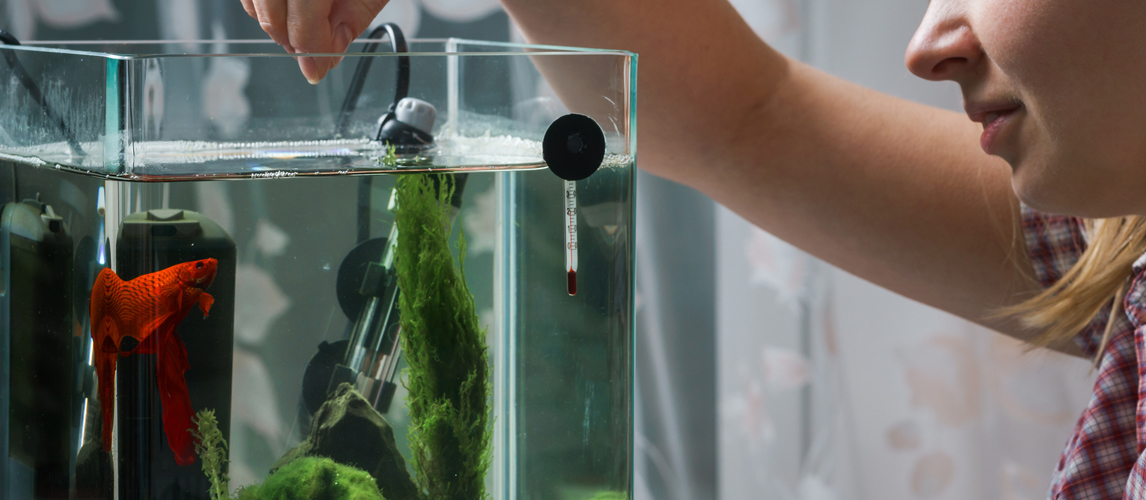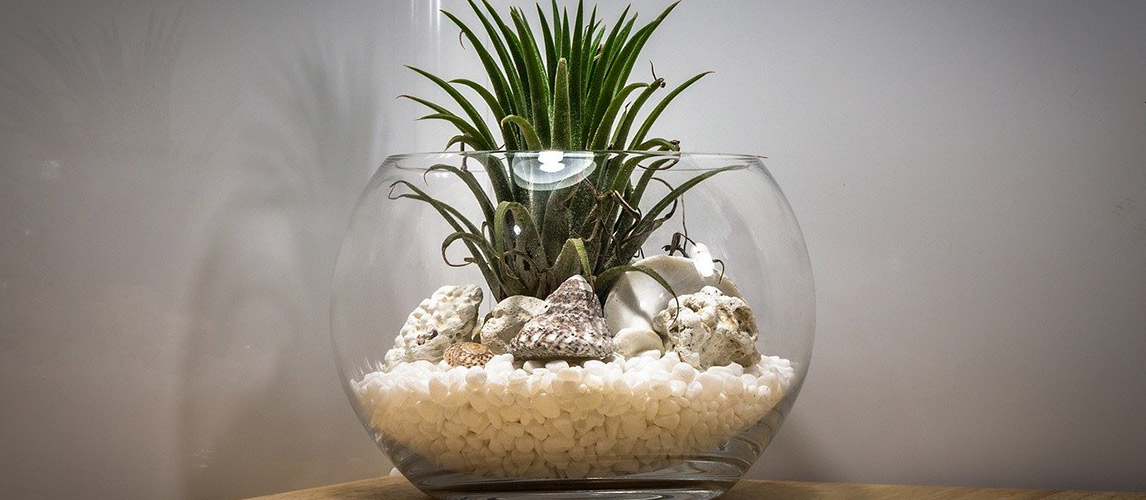At some point, everyone who is now an expert in a particular pet or hobby knew absolutely nothing about them. Saltwater fish and their aquariums can seem inaccessible and complicated, but the truth is, anyone can do it with just a little bit of care and attention. Getting started can seem daunting, and many guides don’t help by jumping into technical concerns and jargon, so we’ve created this starting point to help you understand what you are getting yourself into.
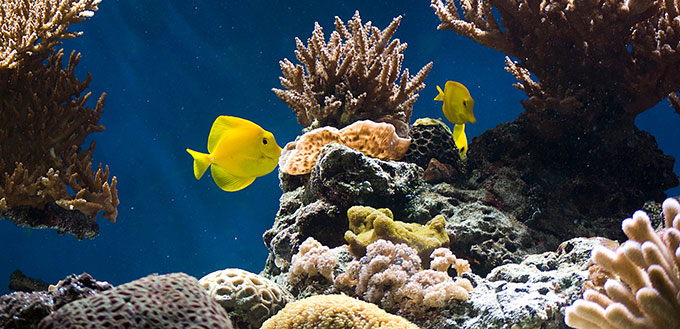
Freshwater or Saltwater Fish
Let’s start with the basics by explaining what a saltwater fish is. As you may already know, the earth has much more water than land, but not all of this water is exactly the same. There are many different water habitats that are home to many different species, but, broadly speaking, they can be divided into two camps: freshwater and saltwater.
- Saltwater Habitats
The majority of water on earth can be considered saltwater as it is water that contains salt and other minerals. Just think of how salty the sea tastes and how it will not help to quench your thirst – that is saltwater. It is estimated that over 70% of the water on the planet earth is saltwater, this may suggest that most aquatic animals are also saltwater.
- Freshwater Habitats
A body of water is considered a freshwater habitat when it contains a salt concentration of less than 1%. As you might imagine, this is relatively rare. However, it is interesting to note that there is a disproportionate amount of fish living in freshwater habitats. It is thought that 41% of all known fish are freshwater fish. Generally, there are two types of freshwater habitat – standing bodies of water, such as ponds, and flowing bodies of water, such as rivers.
So, as you probably figured out, a saltwater fish is a fish that comes from a habitat that has a high concentration of salts, such as a coral reef, while a freshwater fish comes from a habitat that has a low concentration of salts, such as a lake. This fundamental difference means that freshwater fish and saltwater fish cannot share a habitat. If you want to have both, you must be willing to create and maintain two very different environments.
What Does a Saltwater Aquarium Need
Setting up a saltwater aquarium requires detailed research about your fish and their individual needs. While freshwater fish require treatment to further remove some harmful minerals from your water, such as chlorine, saltwater fish will generally need you to add minerals. Different habitats will require different mixes to recreate their composition, and you will need to buy the correct mix because you cannot make it yourself. Other things that are essential for your aquarium include:
- A tank with a hood
- A lid if your breed jumps
- Aquarium Substrate
- A filter
- An aquarium thermometer
- A hydrometer
- A protein skimmer to remove organic waste
- Possibly a lighting system
- Possibly a heating system
- And, of course, don’t forget the appropriate marine salt solution
As a general rule, a saltwater tank should not be smaller than 30 gallons because a smaller tank will suffer more from even the smallest fluctuations in water quality. However, the truth is, the exact specifications of your aquarium depend on the needs of your fish. This requires detailed research. Things you must know about your fish include:
- Their preferred salt and mineral conditions and how to create it
- Their preferred temperature
- Their preferred light conditions
- How large they get
- How much space they need
- What substrate they prefer
- If they are aggressive
- Other fish they are compatible with
- Other fish they are definitely not compatible with
- Any other special requirements they may have
Many saltwater enthusiasts will also recommend that you invest in an emergency power generator or an uninterrupted power supply (UPS). This is necessary to protect your fish and habitat from being affected by a power outage. The inevitable temperature changes and oxygen deficiencies that will occur if your tank is without power for too long will often kill your fish. While it might not happen today or tomorrow, when a power outage does eventually happen, you will be extremely glad to have a backup.
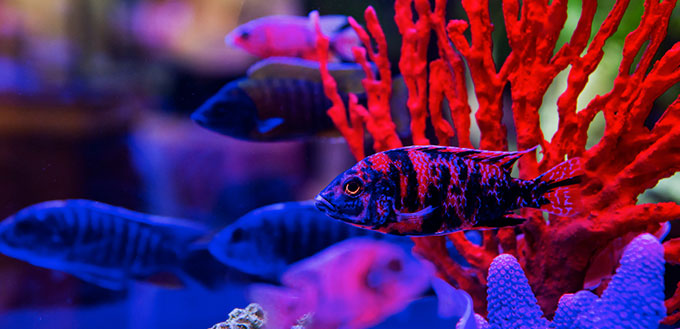
Are There Other Types of Saltwater Aquarium
One of the many joys of having a saltwater aquarium is that you could also add a live rock or create a reef system to live with your fish and make them feel more at home. As you might expect, managing a coral ecosystem can be tricky step to take, and is generally advised after you have succeeded with a fish-only tank, which is known as a FO tank, or a Fish Only With Live Rock tank, which is known as a FOWLR tank.
A FOWLR tank is a tank with a rock that has come from the ocean. This rock is covered in tiny marine life that can benefit the ecosystem you are trying to create. For example, algae on the rock can act as a natural filter for the tank, although you will still need to clean it, as well as a source of food for certain fish. For beginners with freshwater fish experience and who want a bit of a challenge, a FOWLR tank can be a good idea.There are a few different types of live rock, so you will want to research what it is best for your breeds of fish.
More experienced saltwater fish owners may want to move on from FO and FOWLR tanks by introducing live coral reefs to a tank. If you are considering building a reef system, you should be aware that:
- Corals are living, breathing animals that need their own care and attention. This will include particular water temperatures and minerals.
- Your fish may not be compatible with coral reefs. Coral reefs are, after all, just one saltwater habitat, and a fish from another form of saltwater habitat will not thrive with corals.
- Other fish will particularly thrive with, or even need, a coral reef or other sea organisms. Clownfish, for example, will need the right kind of anemone to call their home.
- There are many different types of coral that may be more, or less, compatible with one another, and may have differing levels of difficulty.
What is the Cost of a Saltwater Aquarium
One of the main concerns about saltwater aquariums is their cost. Freshwater aquariums are not only considered easier to care for, although, of course, this depends on the breed you choose, but common freshwater fish are also generally cheaper. Some are as cheap as $5.
On the other hand, marine aquariums, which are another name for saltwater aquariums, are generally more expensive as they require more, specialized equipment. The fish themselves can cost around $20, but will generally be above $50. Unfortunately, your fish cannot live a happy and healthy life without spending quite a lot of money, most probably hundreds of dollars. The good news is that a lot of the cost is upfront, but it is advised that you talk to an existing saltwater fish owner or expert to give you an idea of how much you need to budget.
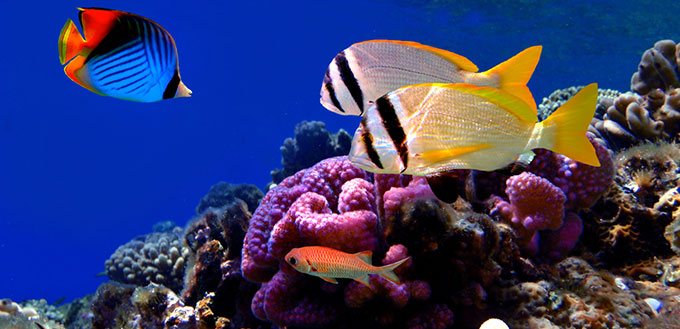
How Do You Feed a Saltwater Fish
The good news is that feeding saltwater fish is not necessarily more expensive or difficult than feeding freshwater fish. You should be able to buy commercially available fish flakes, but, you may also want to consider supplementing these flakes with other foods and treats to provide some variety.
Variety is important for most animals to ensure they are getting the nutrients they need to thrive. Alongside fish flakes, you can consider feeding your saltwater fish:
- Brine shrimp
- Bloodworms
- White worms
- Prawns
- Beef heart
- Tubifex worms
- Microworms
- Algae wafers
- Sheets of unseasoned nori
- Romaine lettuce
- Broccoli
- Squash
- Peas
Many of these foods may come freeze-dried or frozen, but you can also buy some of them live, which is important for breeds of fish that enjoy hunting insects to eat. If you are able to maintain them, it can also be a good idea to carefully grow healthy levels of algae in the tank that your fish will graze on. As always, it is crucial that you research what your particular breed of fish most needs and prefers.
Related Post: Automatic Fish Feeders
How Do You Care For a Saltwater Fish
While a lot of the cost of getting saltwater fish comes when you first invest in the fish and their equipment, the hard work has just begun. You must ensure that your fish’s habitat remains optimal for their health and happiness, and this takes regular tests, and water changes.
As you can imagine, the exact schedule and tasks that you have to undertake depends on the needs of your fish, live rocks or coral reefs. But, to give you an idea of the work you need to put into maintaining your tank, here are some commonly suggested ways to care for a saltwater tank:
- Feed your fish every day
- Check the water temperature every day
- Observe for any potential health issues or tank problems every day
- Test your water quality using a variety of tests once a week
- Respond to changes in water quality and health concerns immediately
As part of your daily observations, potential causes for alarm include:
- signs of parasites
- physical changes in your fish that may include lethargy, loss of appetite, color changes, and problems with their eyes or fins
- physical changes of any other living organisms, such as live rocks, coral or invertebrates
- Debris, such as uneaten food, in the substrate
- Unwanted Algae
- Cloudy water
- Clogged filters
You should keep a diary or log book to keep track of the conditions inside your aquarium. Here, you can also write down the results of your weekly water tests. You should be testing:
- pH
- Salinity
- Temperature
- Alkalinity
- Ammonia
- Nitrate
- Nitrite
- Calcium
- Iodine
- Phosphate
If these tests or your observations suggest a need to clean your tank, you should do it thoroughly by cleaning every part of the habitat. Many experts also suggest you implement a bi-weekly cleaning routine, regardless of your observations. Generally, cleaning a habitat thoroughly will require you to:
- Scrub algae from tank and equipment
- Clean, and potentially replace, the substrate
- Clean equipment
- Wipe down the outside of the tank
- Change water, ensuring it is the right specifications before returning the fish
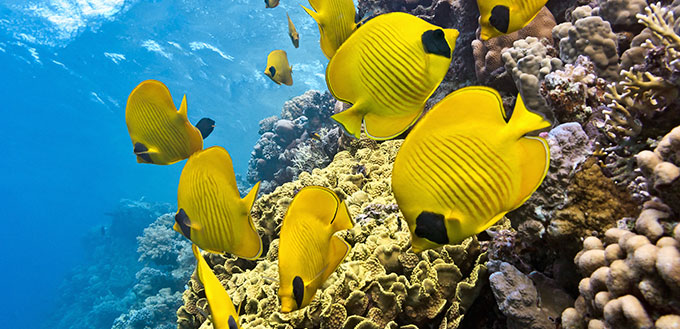
Are There Any Good Saltwater Fish For Beginners
After reading this guide, you may feel more nervous than ever about owning and caring for a saltwater fish, so we wanted to compile a list of relatively easy-to-care-for saltwater fish that you can try if you are a complete beginner. These saltwater fish are a little hardier, in case you mess up, and shouldn’t require a tank that is larger than 4 feet. However, it is always a good idea to check with an experienced saltwater fish expert before making your final decision.
- The Firefish, which is a small, peaceful fish that likes hiding in rocks and only has moderate current and lighting needs.
- The Bi-color Blenny, which also likes hiding in rocks and is generally peaceful, although may pick on other Blennies and smaller Gobies.
- The Yellow Prawn Watchman Goby, which enjoys burrowing, jumping and active swimming, but can also be a little aggressive to members of their own species.
- Klein’s Butterflyfish, which, unlike it’s fellow Butterflyfish, has a relatively simple diet, but will not thrive in a reef system.
- The Coral Beauty Angelfish, which is the easiest of the Angelfish and beautiful to watch, but can be a little aggressive.
- The Ocellaris Clownfish, which will require a suitably large Anemone and cannot share a tank with any aggressive species.
- The Pajama Cardinalfish, which enjoys living with its own kind, but will create an interesting to watch hierarchy within its community.
Not all of these species will work well together and each may have individual care requirements that you need to be aware of. However, compared to some other saltwater fish, they should be easy to care for and make great companions for a beginner. Ultimately, don’t be scared to jump into saltwater fish care. If you are willing to put in the research, time and effort, there is nothing to stop you from setting up and enjoying a beautiful and successful saltwater aquarium.
Sources:
- Remy Melina, Can Saltwater Fish Live in Fresh Water?, Live Science
- 14 Popular Saltwater Fish for Beginners, Fishkeeping World
- Adam Denish, DVM, Freshwater Versus Saltwater Aquariums: What You Need to Know, PetMD


